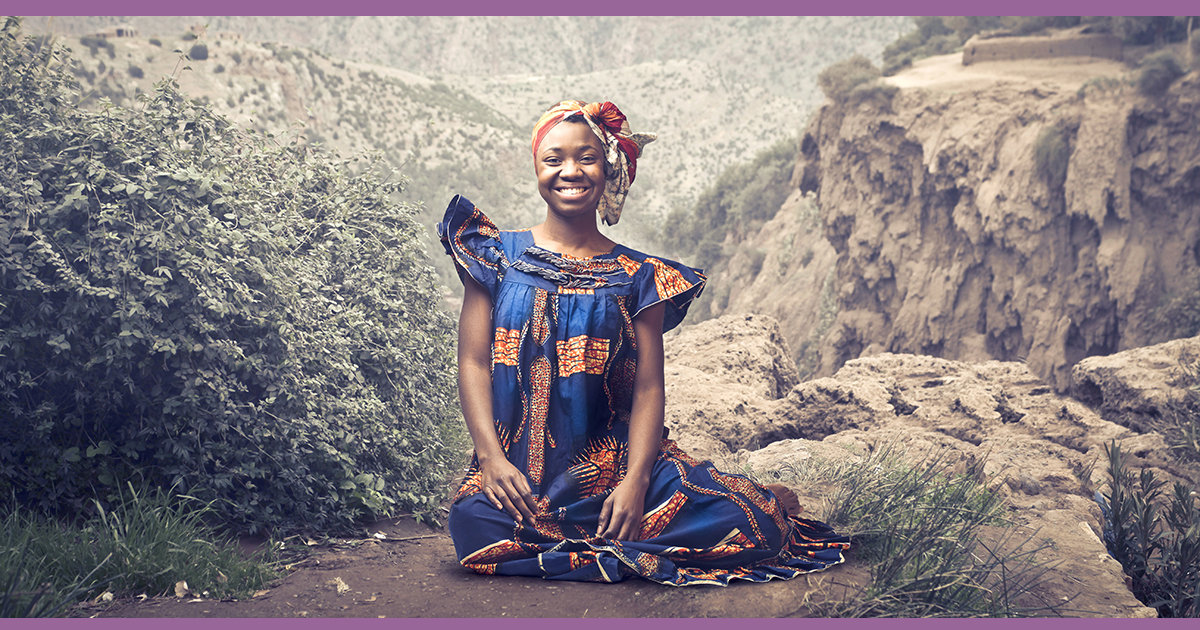Significant efforts towards gender equality have been made through the creation of the African Charter on Human and People's Rights, which encourage member states to end discrimination and violence against women. This promotion of women’s rights in Africa is further seen in one of the world’s most comprehensive and progressive women’s human rights instruments, the Protocol to the African Charter on the Rights of Women in Africa (the Maputo Protocol) which was adopted by Heads of State and Government in Maputo, Mozambique on 11 July 2003.
As an effort to further promote women’s rights in Africa, the Women’s Rights Unit (WRU) and the Advanced Human Rights Courses (AHRC), annually collaborate to deliver the advanced course on Women's Rights in Africa.
This year, due to lockdowns worldwide as a necessary non-pharmaceutical measure against the spread of the COVID-19 virus, the WRU and AHRC hosted their annual 5-day intensive short course on Women’s Rights in Africa from 26 to 30 October 2020 in a virtual format via Zoom.
The course was attended by more than 45 participants, from 17 different countries, 16 of which were African and 1 from South Asia. Amongst the participants were government representatives, legal practitioners, members from civil society organisations, lecturers as well as academics from across the continent working in areas relating to women’s rights.
The course provided a balance between theory and practical advocacy skills. For each day there was a thematic area related to the rights of women for the specific presentations. The lectures and speakers included;
Day 1 - Theme: Women’s rights; introduction and context
- Professor Frans Viljoen, the Director of the Centre for Human Rights gave an overview of the human rights framework.
- Professor Fareda Banda, School of Oriental and African Studies (SOAS) spoke on women, law and human rights from an African perspective.
- Karen Stefiszyn (Gender specialist & Independent consultant) lectured on gender equality and women’s rights in the UN system
Day 2 - Theme: Women’s rights; Regional and International Human rights law
- Dr Adetokunbo Johnson, a Postdoctoral Fellow at the University of the Free State spoke on the Maputo Protocol and women's rights in Africa
- Dr Satang Nabaneh, a Project Manager in the Master's programme in Sexual and Reproductive Rights in Africa at the Centre for Human Rights, University of Pretoria, lectured on the overview of the General Comments and Guidelines issued by the African Commission on the Maputo Protocol
- Hon Lucy Asuagbor, Retired Judge of the Supreme Court of Cameroon and a Former Special Rapporteur on the Rights of Women in Africa in the African Commission on Human and Peoples’ Rights, spoke on Article 27 of the Maputo Protocol and then on the impact of terrorism and counter-terrorism on women's rights in Africa.
Day 3 - Theme: Selected thematic women’s rights issues
- Dr Zahara Nampewo, School of Law, Makerere University, spoke on the dilemma of women’s rights within the domain of cultural relativism: Finding common ground.
- Oluwatomi Okeowo, a Women's Rights Specialist presented on advancing the sexual rights of older women in Africa.
- Dr Nkatha Kabira, School of Law, University of Nairobi, and Prof Patricia Kameri-Mbote, School of Law, University of Nairobi, delivered a combined presentation on the place of African women's human rights in SDG 5 on achieving gender equality.
Day 4 - Theme: Engaging with policymakers, civil society, and States on women’s rights
- Dr Mariam Kamunyu, Gender Equality Specialist, Catholic University of Eastern Africa, focused on the gender responsiveness of the African human rights system and the jurisprudence of the African Commission on Human and Peoples Rights.
- Thabitha Saoyo, PhD Candidate, Cardiff University, delivered a lecture on using human rights principles to realise sexual and reproductive by looking at legal and advocacy approaches.
- Patience Mungwari Mpani, Manager of the Women’s Rights Unit, presented on state party reporting & shadow reporting processes.
Day 5 - Theme: Selected women’s rights issues
- Dr Janet Munakamwe, Research Fellow, African Centre for Migration and Society, presented on human rights abuses of migrant workers in the SADC Region.
- Hlengiwe Dube, Manager: Expression, Information and Digital Rights Unit, Centre for Human Rights, made a presentation on women’s rights in the digital age.
The most interesting practical part of the course consisted of two class exercises:
- #AgeWithRightsCampaign
The #AgeWithRightsCampaign led by Lydia Chibwe (Project Assistant: Women’s Rights Unit, Centre for Human Rights & PhD Candidate). Participants were introduced on the Protocol to the African Charter on Human and Peoples' Rights on the Rights of Older Persons (Older Persons Protocol) and then asked to fill a form that will assist the Centre in an online campaign to call their respective governments to ratify the Older Persons Protocol as it is not yet into force.
- Gender-based violence in Africa
The group discussion and presentations were led by Susan Mutambasere (Project Coordinator: Women’s Rights Unit &LLD Candidate Centre for Human Rights) and Hlengiwe Dube (Project Manager: Expression, Information and Digital Rights Unit, Centre for Human Rights). Participants were divided into four countries, these were Kenya, South Africa, Nigeria and Cameroon. In their respective groups they were asked to:
- Describe the prevalence of violence against women online (making use of media reports, organization reports and any other relevant sources)
- Mention the legal framework in the country to protect women against violence online (any specific legislation on this, any cases decided on the issue)
- Recommendations for improvement
The course was very successful, and we thank the donors for their support.
